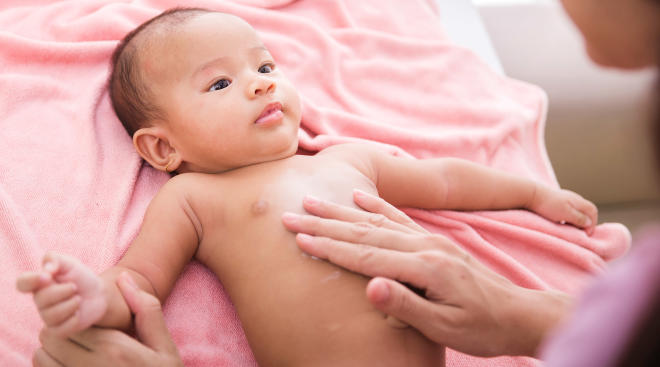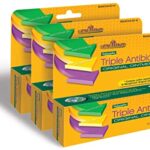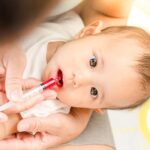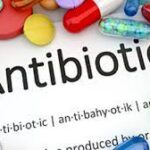Can Triple Antibiotic Ointment Be Used on Children?

Triple-antibiotic ointment (TAO) is a type of ointment for the prevention of infections in minor skin trauma. The formulation contains neomycin, polymyxin B and bacitracin in a petrolatum base. TAO is active against the most common disease-causing pathogens found in wounds and on the skin and may be an attractive alternative to oral therapy in select circumstances.
This medication is a safe and effective topical agent used to prevent and treat minor skin infections caused by small cuts, scrapes, or burns. It is available without a prescription for self-medication. Do not use this product over large areas of the body. Ask your doctor first before using this product for serious skin injuries or infections (e.g., deep cuts, puncture wounds, animal bites, serious burns).
How to use Triple Antibiotic Ointment
This medication is for use on the skin only. Follow all directions on the product package or use as directed by your doctor. If you have any questions, ask your doctor or pharmacist.
Clean and dry the affected skin area. If you are using the ointment, wash your hands first. Then apply a small amount of medication (no more than can fit on your finger tip) in a thin layer on the skin and rub in gently, usually 1 to 3 times a day. Wash your hands after applying the ointment. If you are using the spray, shake the container well before using, then spray a small amount on the affected area as directed, usually 1 to 3 times a day. You may cover small treatment areas with a sterile bandage.
Do not use large amounts of this medication or apply this more often or for a longer period than directed. Your condition will not clear faster, but the risk of side effects may be increased. Do not use this product for longer than 1 week unless directed by your doctor. Do not use this medication on irritated skin in a child’s diaper area unless directed by the doctor. After applying the medication to the diaper area, do not use tight-fitting diapers or plastic pants.
Avoid getting this medication in your eyes or inside the nose or mouth. If this occurs, wipe off the medication and rinse thoroughly with water.
Use this medication regularly in order to get the most benefit from it. To help you remember, use it at the same time(s) each day.
If your condition does not improve after a few days or if it worsens, or if you think you may have a serious medical problem, seek immediate medical attention.
Can Triple Antibiotic Ointment Be Used on Children?
There is no clear age specification for use of triple antibiotic ointment. It is best to consult a physician before applying it to your child in any instance. Your doctor should be informed of any and all medications your child is taking to avoid any drug interactions. For example, using triple antibiotic ointment with hydrocortisone cream may mask symptoms of an allergic reaction.
General Medicine Safety Basics For Children
For safe medicine use:
- Always check with your doctor if you’re unsure whether symptoms need medical treatment.
- Never use leftover medicines. For example, pharmacists will sometimes dispense more liquid medicine than is needed in case some is spilled or measured incorrectly. If you have leftover liquid medicine, throw it out. For medicines taken as needed, keep an eye on the expiration date to make sure you don’t give an outdated medicine.
- Never give your child medicines that have been prescribed to someone else, whether it’s an adult or child. Even if two people have the same illness, they may need different drugs with different dosages and directions.
- Never give a child a medicine that is meant for adults.
- Check with your doctor or pharmacist before giving two types of medicines with the same ingredients to your child.
- When buying OTC medicines, check the packaging for possible tampering, and don’t use any medicine in a cut, torn, or sliced package. Check the expiration date too.
- Work with a local pharmacist so that your family’s medicine history is in a central location. Consult your pharmacist if you have questions about any medicine, including information about possible side effects or reactions.





